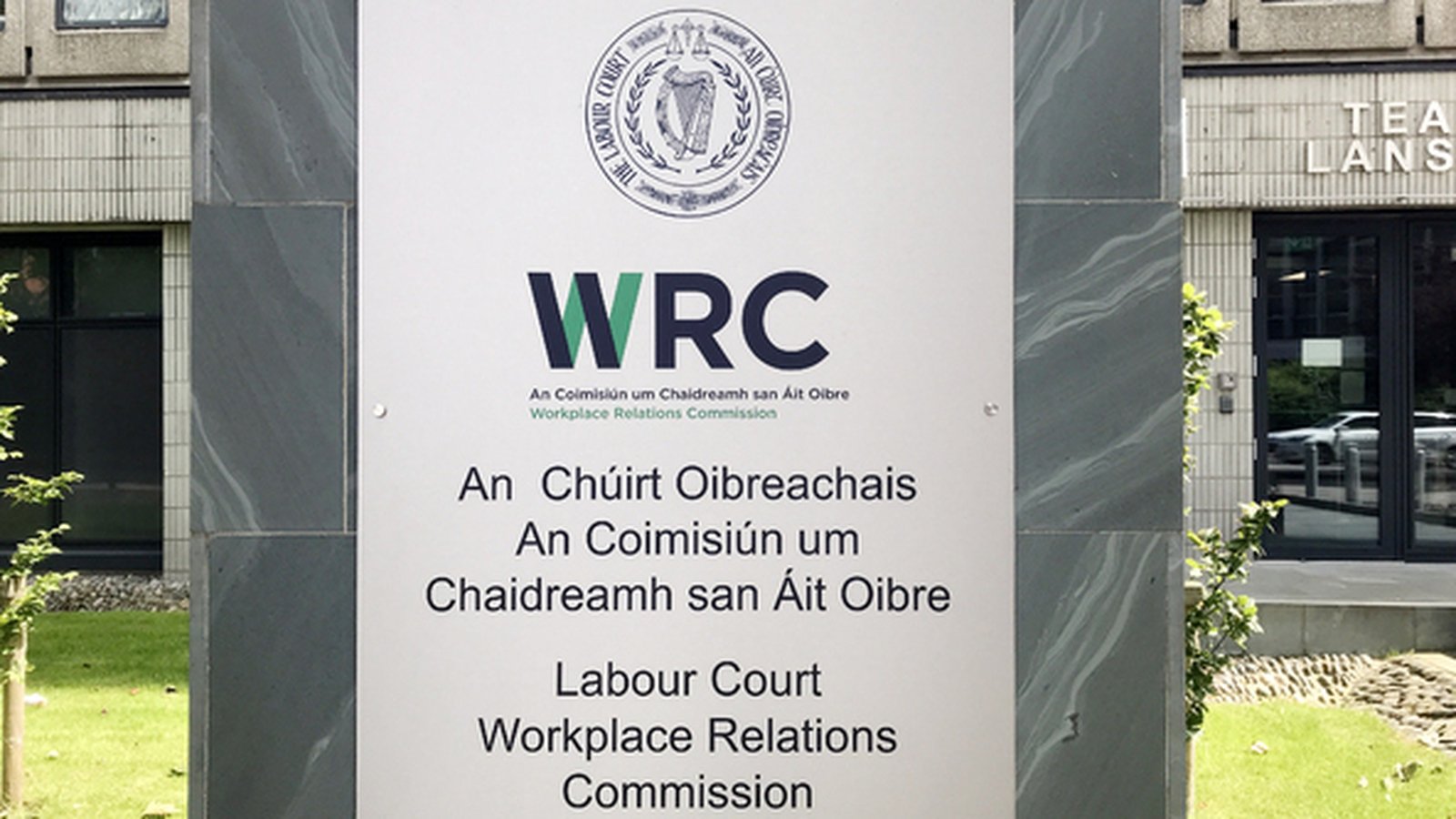World
Cleaner who rejected manager’s advances wins €10k at WRC

A cleaner who said his relationship with his manager “went downhill rapidly” and was warned about his choice of “form-fitting cycling leggings” for work after he rejected her romantic overtures has won €10,000 in compensation for sexual harassment and discriminatory dismissal after challenging his sacking at a tribunal.
His former employer, the cleaning contractor at an army barracks in Dublin, had insisted at the Workplace Relations Commission that it sacked the worker – a former soldier – over alleged performance issues and complaints about him wearing “form-fitting cycling leggings” while he was doing his work.
Giving evidence to the tribunal on his complaint under the Employment Equality Act, the worker said none of that had ever been an issue before he rebuffed his supervisor over lunch in early February 2023.
He said the supervisor, an area manager identified only as Ms A in an anonymised tribunal decision published today, said she had previously told him he was “responsible for [the barracks] looking so good” and called him “the best cleaner we ever had”.
The worker said he was having lunch with Ms A at the barracks in February last year when the woman told him she “liked him” and asked him out.
He told the WRC he was “not interested in getting into a relationship” as he had “just come out of a 27-year marriage”.
“After rebuking Ms A’s advances, things went downhill rapidly… she became hostile towards him and kept telling him his work was not up to standard,” the tribunal noted in a summary of the worker’s evidence.
The worker told the tribunal that despite the fact that his six-month probation period had expired on 7 February that year, his employer wrote to him on 23 February and informed him that his probation was being extended by three months.
The following day he received a letter of dismissal, he added.
The company’s position was that there had been an “unpleasant altercation” that day involving the complainant, Ms A, and the company’s national operations manager.
The complainant was “exceptionally disrespectful and verbally abusive” towards both women, the company submitted.
The company told the tribunal that the complainant had been pulled up previously on wearing “form-fitting cycling leggings” to work and had agreed to wear jeans as an alternative to work trousers – but had continued to go to work in the offending leggings.
Ms A had been asked by the administrator in charge of procurement at the barracks: “Will you please ask [the complainant] to dress appropriately going into the mess. It is inappropriate; either you stop him or you get him out,” the tribunal was told.
When Ms A attempted to address this when they met on 23 February last year, the worker was alleged to have responded: “Who are you to tell me what not to wear? I run this barracks.”
The firm’s position was that the worker’s “exalted notion of his own importance could not and would not be tolerated any longer”.
The worker denied that he “cursed and shouted abusively”, but told the tribunal he was “baffled and extremely anguished” about how he was being treated by Ms A at the time.
Ms A was described in company submissions as a 40-year veteran of the contract cleaning sector and “well-respected” in the industry, the WRC noted.
The company added that the allegation that Ms A propositioned the worker and saw to it that he was sacked when he turned her down was an “intensely personal untruth” which would cause her “great embarrassment” if the details were published and sought that the tribunal anonymise its decision on the matter because of that.
In evidence, the area manager accepted having lunch with the worker, but denied that she made “advances” towards him or subjected him to harassment.
In her decision, WRC adjudicator Valerie Murtagh noted a denial by Ms A that she “made advances” towards the worker or subjected to harassment – but wrote: “I prefer, on the balance of probabilities, the complainant’s version of events”.
She made a finding that “following on” from the worker rejecting Ms A’s advances, the supervisor “found fault with the standard of the complainant’s work and started to chastise him”.
“Ms A suddenly had issues with him not conforming to the company uniform, and spurious issues of underperformance on work issues and failed audit reports,” Ms Murtagh wrote.
Ms Murtagh added that she had “significant issues” admitting a letter the firm had also sent in signed by an administrator at the barracks referring to uniform issues because there was no witness available to support it.
She added that it was not “plausible” that the company had only been able to find one pertinent audit sheet to send in to the WRC indicating a failure to meet standards and wrote that neither the document nor the company’s argument on that point was “persuasive”.
“I find that the complainant has established a prima facie case that he was subject to unwanted conduct by Ms A and was treated less favourably in his conditions of employment on grounds of gender by the respondent in that he was subjected to harassment in the course of his employment after rejecting Ms A’s advances,” Ms Murtagh wrote.
She ruled the worker had suffered discrimination on the grounds of gender as well as harassment – and because the dismissal was “not unconnected” with the way he had been treated by Ms A, Ms Murtagh made a further finding of discriminatory dismissal.
The adjudicator found an award of €10,000 was the appropriate sum of compensation “for the effects of the discrimination”.










